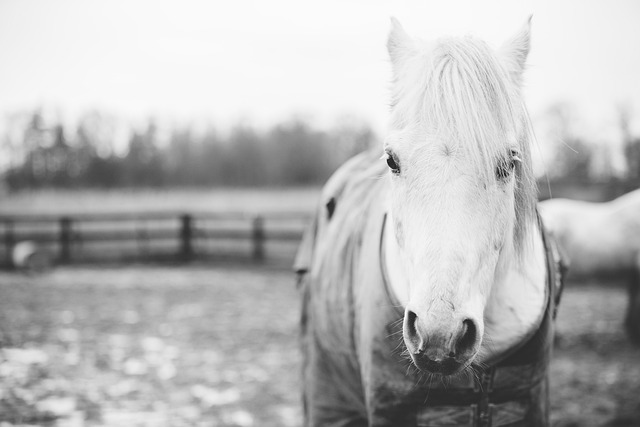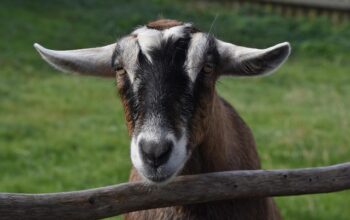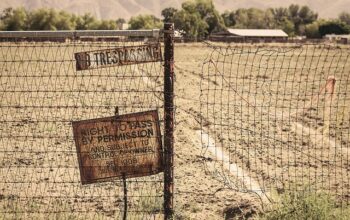Choosing a fence for farms in Ontario requires balancing durability, aesthetics, and cost. Traditional wood offers affordability but limited longevity. Modern alternatives like vinyl, steel, and bamboo provide superior durability, low maintenance, and eco-friendliness. Steel or concrete reinforce structures against harsh conditions, while electric fences secure livestock. Prioritize durable materials based on farm needs, climate, and budget. Consider locally sourced, natural materials for minimal environmental impact, blending with Ontario's landscapes.
Looking for the perfect fence to enhance your Ontario farm? Whether you’re seeking security, privacy, or simply a stunning aesthetic, we’ve got you covered. This comprehensive guide explores seven top fence options tailored for Ontario’s unique landscape and climate. From durable materials to eco-friendly designs, discover the best fit for your agricultural needs while considering maintenance, aesthetics, and environmental impact.
Material Options for Farm Fences
When it comes to choosing a fence for farms in Ontario, material options play a significant role in durability, aesthetics, and cost-effectiveness. Wood has long been a popular choice due to its natural beauty and affordability. However, modern alternatives like vinyl and steel offer superior longevity against rot, decay, and weather damage. These materials also require minimal maintenance, making them ideal for farms with heavy equipment or livestock that could damage traditional wood fences.
For a more eco-friendly option, consider bamboo fences. This fast-growing material provides an excellent aesthetic appeal while being sustainable. Additionally, new technologies have introduced composite fencing, combining plastic and wood fibers to create durable, low-maintenance barriers. Each material offers unique advantages, catering to various farm needs and preferences, ensuring optimal protection for crops or livestock while enhancing the overall look of Ontario farms.
Types of Fences Suitable for Ontario Farms
When it comes to choosing a fence for farms in Ontario, there are various options that cater to different needs and preferences. The ideal fence should provide security, protect crops from wildlife, and complement the farm’s natural landscape. Here, we explore suitable types of fences for Ontario farms.
Wooden posts and rails remain a classic and popular choice. These traditional fences not only offer good visibility but also blend seamlessly with the surrounding environment. For a more robust option, steel or concrete posts can be used, especially in areas prone to high winds or wildlife damage. Modern alternatives include vinyl-coated wire fencing, which is durable, low-maintenance, and effective at keeping out unwanted animals. Additionally, electric fences are suitable for larger farms, providing a safe and humane way to keep livestock within designated areas while deterring intruders.
Maintenance Considerations for Durable Fencing
When considering fencing options for your Ontario farm, durability should be a top priority. The right fence can withstand harsh weather conditions, heavy traffic, and years of wear and tear. However, even the sturdiest fences require maintenance to stay in top condition. Regular cleaning, inspection, and repairs are essential to prevent damage from rust, rot, or animal intrusion.
Choosing materials that are easy to maintain can save you time and money in the long run. For example, vinyl fencing is low-maintenance and resistant to fading, cracking, and warping. Wooden fences require more upkeep but offer a classic aesthetic appeal and can be treated with preservatives for enhanced durability. Consider your farm’s specific needs, climate, and budget when selecting a fence type to ensure it stands the test of time.
Environmental Impact and Farm Aesthetics
When selecting a fence for farms in Ontario, it’s essential to consider both functionality and aesthetics, especially with the region’s diverse landscapes and environmental concerns. The right fence can enhance farm visuals while also protecting crops and livestock.
One key aspect is minimizing the ecological footprint. Natural, locally sourced materials like wood or bamboo fences blend seamlessly into the Ontario landscape. These options not only reduce visual impact but also support sustainable practices. Alternatively, modern chain-link fences offer durability and security without disrupting the natural beauty, making them suitable choices for environmentally conscious farmers in Ontario.
When choosing a fence for farms in Ontario, considering durable materials, suitable types tailored to local conditions, regular maintenance, environmental impact, and aesthetic appeal is essential. The options discussed offer both functionality and beauty, enhancing farm landscapes while providing necessary barriers. Whether prioritizing security, livestock containment, or visual appeal, these seven best fence options cater to diverse Ontario farming needs.




